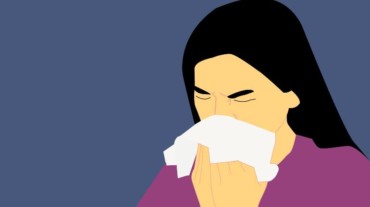
There was a time when a running nose, a couple of sneezes, nagging cough and wheezing were sure-shot indicators of either a mild or severe case of a cold or flu. But in Covid-19 times, you can’t really say! As new Covid-19 cases and the presence of its variants like Omicron witness a global upswing, sneezes and
sniffles are reasons enough to worry. But every time it happens, is it Covid-19?
This confusion is leaving people at crossroads, wondering whether to just take simple cold and flu medication or to go and get tested for Covid-19. And if at all there is a way to tell the difference.
According to the Centers for Disease Control and Prevention (CDC), the one common factor between Influenza (flu) and Covid-19 is that they are both contagious respiratory illnesses. The differentiating factor is that they are caused by different viruses.
As we all know by now, Covid-19 is caused by infection with SARS-CoV-2, flu is caused by infection with influenza viruses.

Some of the most common symptoms of Covid-19, reported during the Delta variant wave, included:
Covid-19 spreads more easily than flu and causes more serious illnesses in some people. Covid-19 can also take longer before people show symptoms and people can be contagious for longer.
Testing is the best way forward to ascertaining the cause of symptoms which are similar in nature, concedes the CDC.
HealthShots reached out to Dr Pritha Nayyar, Respiratory Specialist, Asian Hospital, to ask more about it.
“When a person has cold, it means there are very common symptoms like running nose and little bit of sore throat and headache. While these symptoms are also there in Covid-19, a lot of patients complained of loss of taste and smell, headache and fever. The coughing and sore throat are worse than in a flu. Also, these symptoms are prolonged and persistent in Covid-19,” Dr Nayyar explains.
But here’s the googly!
Select Topics of your interest and let us customize your feed.
PERSONALISE NOWOmicron, the latest Covid-19 kid on the block, leads to milder symptoms than the Delta variant, and a lot of patients are not complaining of loss of smell and taste, reports have indicated. Additionally, if UK media reports are to be believed, nausea and loss of appetite have emerged as new symptoms caused by the Omicron variant.
The major downside of Omicron is that it is more transmissible than its predecessors.
Also Read: Anxiety and panic around Omicron? Try these 6 ways to calm your nerves

The threat is palpable already, with several countries, including India, reeling under rising number of Covid-19 cases once again.
Maria Van Kerkhove, the Covid-19 Technical Lead at World Health Organzation, tweeted on Tuesday: “Omicron is NOT the common cold. While some reports show a reduced risk of hospitalisation of Omicron compared to Delta, there are still far too many people infected, in hospital sick and dying from Omicron (and Delta). We can prevent infections, save lives now.”
Is it then best to get tested for Covid-19 everytime someone has flu-like symptoms?
Dr Nayyar suggests, “Whenever there is a sore throat, history of travel, history of contact, and fever, one should get tested. This will help in curbing its infectious nature and it will not spread in the community.”
People typically like to wait it out to see if the symptoms slow down. Even Dr Nayyar says getting tested after three to four days of the symptoms is ideal.
“However, be mindful that whenever you have the first fever spike, you should get tested for Covid-19 immediately,” she adds.
Maintaining social distancing and staying at home can be a great first step towards controlling the spread of the virus. Besides that, practicing basic safety protocols like wearing a proper mask and sanitizing hands must be priority if you had started letting your guards down. Stay home, and stay safe!